 W
WGiuseppe Adami was an Italian librettist, playwright and music critic, he was best known for his collaboration with Giacomo Puccini on the operas La rondine (1917), Il tabarro (1918) and Turandot (1926).
 W
WScipione Agnelli was an Italian Catholic bishop, scholar and jurist.
 W
WAngelo Anelli was an Italian poet and librettist who also wrote under the pseudonyms Marco Landi and Niccolò Liprandi. He was born in Desenzano del Garda and studied literature and poetry at a seminary in Verona. In 1793 he enrolled in the University of Padua, receiving a degree in Canon and Civil Law two years later. Active in the politics of the Cisalpine Republic in his youth, he was imprisoned twice. His 1789 sonnet on the vicissitudes of Italy under Austrian domination, "La calamità d'Italia", was for a long time incorrectly attributed to Ugo Foscolo.
 W
WSem Benelli was an Italian playwright, essayist and librettist. He provided the texts for several noted Italian operas, including Italo Montemezzi's L'amore dei tre re and L'incantesimo, and Umberto Giordano's La cena delle beffe, based on Benelli's own play of the same title. He was a native of Prato.
 W
WGiovanni Emanuele Bidera was an Italian writer of Albanian and Greek extraction. He is primarily known as the librettist of Gaetano Donizetti's operas Gemma di Vergy and Marino Faliero, but he also wrote many other librettos for lesser known composers as well as plays, essays, books about Naples, and a treatise on acting. Bidera was born in the small Sicilian town of Palazzo Adriano and spent most of his career in Naples. In 1850 he retired to Palermo where he died at the age of 73.
 W
WArrigo Boito was an Italian poet, journalist, novelist, librettist and composer, best known today for his libretti, especially those for Giuseppe Verdi's last two monumental operas Otello and Falstaff and his own opera Mefistofele. Along with Emilio Praga and his own brother Camillo Boito, he is regarded as one of the prominent representatives of the Scapigliatura artistic movement.
 W
WMichelangelo Buonarroti il Giovane was a Florentine poet, librettist and man of letters, known as "the Younger" to distinguish him from his granduncle.
 W
WGiovanni Francesco Busenello was an Italian lawyer, librettist and poet of the 17th century.
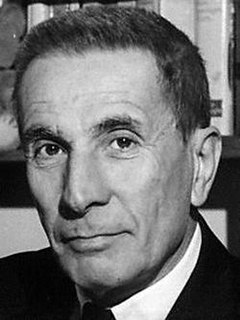 W
WDino Buzzati-Traverso was an Italian novelist, short story writer, painter and poet, as well as a journalist for Corriere della Sera. His worldwide fame is mostly due to his novel The Tartar Steppe, although he is also known for his well-received collections of short stories.
 W
WSalvadore Cammarano was a prolific Italian librettist and playwright perhaps best known for writing the text of Lucia di Lammermoor (1835) for Gaetano Donizetti.
 W
WFabio Casadei Turroni is an Italian novelist, musicologist and journalist. Son of the painter Rino Casadei Turroni, he studied singing and got his bachelor's degree as a musicologist at the Department of Art and Music at Bologna State University. He then established himself as a lyrical tenor. Casadei Turroni's performing style was highly appreciated by some of the best musicians of the 20th century, but at the age of 38 he gave up performing because of his health troubles, and started writing novels. He currently lives between Bologna and Milan.
 W
WSuso Cecchi D'Amico was an Italian screenwriter and actress. She won the 1980 David di Donatello Award for lifetime career. She worked with virtually all of the most celebrated post-war Italian film directors, and wrote or co-wrote many award-winning films—among them:Franco Zeffirelli: The Taming of the Shrew, Brother Sun, Sister Moon Luchino Visconti: Bellissima, Rocco and His Brothers, Senso, Ludwig, The Leopard, Conversation Piece Vittorio de Sica: Bicycle Thieves, Miracle in Milan Michelangelo Antonioni: Le Amiche Mario Monicelli: Big Deal on Madonna Street, Risate di gioia, Casanova 70 Alessandro Blasetti: Lucky to Be a Woman Luigi Zampa: L'onorevole Angelina, To Live in Peace Francesco Rosi: Salvatore Giuliano Luigi Comencini: The Window to Luna Park Alberto Lattuada: Flesh Will Surrender
 W
WPope Clement IX, born Giulio Rospigliosi, was Pope from 20 June 1667 to his death in 1669.
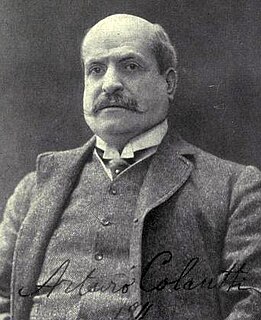 W
WArturo Colautti was an Italian journalist, polemicist and librettist. He was a strong supporter of Italian irredentism for his native Dalmatia.
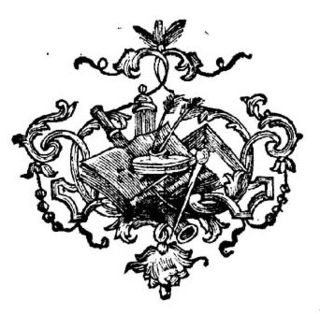 W
WMarco Coltellini was an Italian opera tenor, librettist and printer.
 W
WMargherita Costa, singer, poet, playwright and feminist, is the most Baroque of the seventeenth-century Italian women writers and stands out for her original style and themes. As a poet, she employs a variety of genres, using humor and irony to criticize prevailing attitudes towards women and to mock the politics of her times. She is the first Italian woman writer to use humor and satire in her published works. Some of her poems are partially autobiographical for they include allusions to events in her life and complaints about her lack of fortune and literary recognition. Her poetry stresses the obstacles she faced as a woman and the difficult life of women in general. Costa was a prolific writer, publishing two books of prose, six volumes of poetry, three plays, two narrative poems and an allegorical pageantry, in verse, for knights on horseback..
 W
WLorenzo Da Ponte was an Italian, later American opera librettist, poet and Roman Catholic priest. He wrote the libretti for 28 operas by 11 composers, including three of Mozart's most celebrated operas, The Marriage of Figaro (1786), Don Giovanni (1787), and Così fan tutte (1790).
 W
WNicola Daspuro was an Italian writer, journalist, and librettist. Amongst his librettos were those for Macagni's L'amico Fritz and Giordano's Mala vita. Several of his librettos were written under the anagramatic pseudonym P. Suardon.
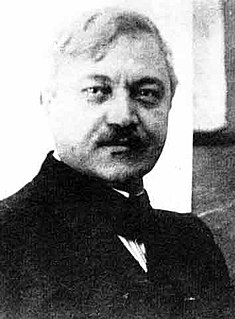 W
WSalvatore Di Giacomo was an Italian poet, songwriter, playwright and fascist, one of the signatories to the Manifesto of the Fascist Intellectuals.
 W
WCount Giacomo Durazzo was an Italian diplomat and man of theatre. He was born into one of the most important aristocratic families in Genoa. His brother was the famous doge Marcellino Durazzo. In 1749, he became ambassador to the court in Vienna, where he was appointed director of the imperial theatres in the city in 1754. He is most famous for working with the composer Christoph Willibald Gluck on reforming Italian opera.
 W
WBenedetto Ferrari was an Italian composer, particularly of opera, librettist, and theorbo player.
 W
WLorenzo Ferrero is an Italian composer, librettist, author, and book editor. He started composing at an early age and has written over a hundred compositions thus far, including twelve operas, three ballets, and numerous orchestral, chamber music, solo instrumental, and vocal works. His music is characterized by eclecticism and a neo-tonal language.
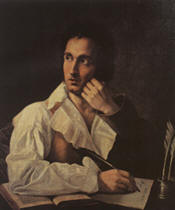 W
WJacopo Ferretti was an Italian writer, poet and opera librettist. His name is sometimes written as Giacomo Ferretti.
 W
WFerdinando Fontana was an Italian journalist, dramatist, and poet. He is best known today for having written the libretti of the first two operas by Giacomo Puccini – Le Villi and Edgar.
 W
WGiovacchino Forzano was an Italian playwright, librettist, stage and film director. A resourceful writer, he authored numerous popular plays and produced opera librettos for most of the major Italian composers of the early twentieth century, including the librettos for Giacomo Puccini's Suor Angelica and Gianni Schicchi.
 W
WAntonio Ghislanzoni was an Italian journalist, poet, and novelist who wrote librettos for Verdi, among other composers, of which the best known are Aida and the revised version of La forza del destino.
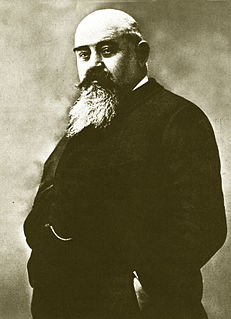 W
WGiuseppe Giacosa was an Italian poet, playwright and librettist.
 W
WCarlo Osvaldo Goldoni was an Italian playwright and librettist from the Republic of Venice. His works include some of Italy's most famous and best-loved plays. Audiences have admired the plays of Goldoni for their ingenious mix of wit and honesty. His plays offered his contemporaries images of themselves, often dramatizing the lives, values, and conflicts of the emerging middle classes. Though he wrote in French and Italian, his plays make rich use of the Venetian language, regional vernacular, and colloquialisms. Goldoni also wrote under the pen name and title Polisseno Fegeio, Pastor Arcade, which he claimed in his memoirs the "Arcadians of Rome" bestowed on him.
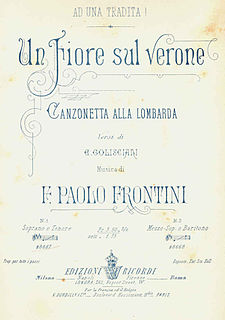 W
WEnrico Golisciani was an Italian author, born in Naples. He is best known for his opera librettos, but also published a slim volume of verses for music, entitled Pagine d'Album ; many more of his poems intended to be set to music were published in the Gazzetta Musicale di Milano.
 W
WClaudio Guastalla was an Italian opera librettist.
 W
WNicola Francesco Haym was an Italian opera librettist, composer, theatre manager and performer, literary editor and numismatist. He is best remembered for adapting texts into libretti for the London operas of George Frideric Handel and Giovanni Bononcini. Libretti that he provided for Handel included those for Giulio Cesare, Ottone, Flavio, Tamerlano, Rodelinda, and several others; for Bononcini, he produced two, Calfurnia and Astianatte.
 W
WLuigi Illica was an Italian librettist who wrote for Giacomo Puccini, Pietro Mascagni, Alfredo Catalani, Umberto Giordano, Baron Alberto Franchetti and other important Italian composers. His most famous opera libretti are those for La Bohème, Tosca, Madama Butterfly and Andrea Chénier.
 W
WCristoforo Ivanovich (1620–1689) was the first historian of Venetian opera, who also wrote several librettos.
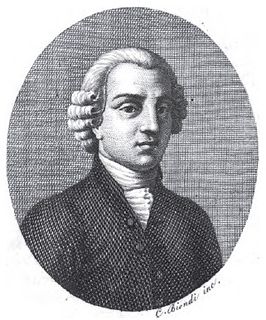 W
WSebastiano Biancardi, known by the pseudonym Domenico Lalli, was an Italian poet and librettist. Amongst the many libretti he produced, largely for the opera houses of Venice, were those for Vivaldi's Ottone in villa and Alessandro Scarlatti's Tigrane. A member of the Accademia degli Arcadi, he also wrote under his arcadian name "Ortanio". Lalli was born and raised in Naples as the adopted son of Fulvio Caracciolo but fled the city after being implicated in a bank fraud. After two years wandering about Italy in the company of Emanuele d'Astorga, he settled in Venice in 1710 and worked as the "house poet" of the Grimani family's theatres for the rest of his career. In addition to his stage works, Lalli published several volumes of poetry and a collection of biographies of the kings of Naples. He died in Venice at the age of 62.
 W
WAndrea Maffei was an Italian poet, translator and librettist. He was born in Molina di Ledro, Trentino. A follower of Vincenzo Monti, he formed part of the 19th-century Italian classicist literary culture. Gaining laurea in jurisprudence, he moved for some years to Verona, then to Venice and finally to Milan, where in 1831 he married contessa Clara Spinelli. They separated by mutual consent on 15 June 1846.
 W
WMarco Marcelliano Marcello was an Italian writer and composer. He was particularly known for the opera librettos which wrote for the Italian composers Achille Peri, Carlo Pedrotti, and Antonio Cagnoni as well as his translations of French operas for their first performances in Italy, including Meyerbeer's L'Africaine.
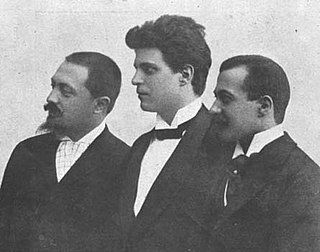 W
WGuido Menasci was an Italian opera librettist.
 W
WGian Carlo Menotti was an Italian-American composer and librettist. Although he often referred to himself as an American composer, he kept his Italian citizenship. He wrote the classic Christmas opera Amahl and the Night Visitors, along with over two dozen other operas intended to appeal to popular taste.
 W
WBartolomeo Merelli was an Italian impresario and librettist, best known as the manager of the La Scala Milan opera house between 1829 and 1850, and for his support for the young Giuseppe Verdi.
 W
WPietro Antonio Domenico Trapassi, better known by his pseudonym of Pietro Metastasio, was an Italian poet and librettist, considered the most important writer of opera seria libretti.
 W
WGiovanni Ambrogio Migliavacca was an Italian poet and librettist. A student and protégé of Metastasio, he was primarily active in the court theaters of Dresden and Vienna. His most successful work was the libretto for the opera Solimano, first set by Johann Adolph Hasse in 1753 and subsequently set by 18 other composers in the course of the next 50 years.
 W
WDario Niccodemi was a novelist and a playwright who was born in Italy.
 W
WAntonio Ottoboni (1646–1720) was a Neapolitan general, nephew of Pope Alexander VIII and the father of Cardinal Pietro Ottoboni.
 W
WCount Carlo Pepoli was an Italian politician and journalist. He was also acclaimed as a poet, his most well-known work being the libretto for Vincenzo Bellini's final opera, I puritani which was given its premiere in Paris in January 1835.
 W
WFrancesco Maria Piave was an Italian opera librettist who was born in Murano in the lagoon of Venice, during the brief Napoleonic Kingdom of Italy.
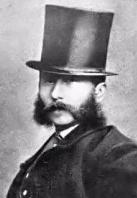 W
WEmilio Praga was an Italian writer, painter, poet and librettist. He is the father of the artist Marco Praga. He belongs to the artistic movement Scapigliatura.
 W
WOttavio Rinuccini was an Italian poet, courtier, and opera librettist at the end of the Renaissance and beginning of the Baroque eras. In collaborating with Jacopo Peri to produce the first opera, Dafne, in 1597, he became the first opera librettist.
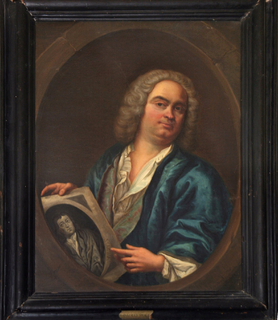 W
WPaolo Antonio Rolli was an Italian librettist, poet and translator.
 W
WFelice Romani was an Italian poet and scholar of literature and mythology who wrote many librettos for the opera composers Donizetti and Bellini. Romani was considered the finest Italian librettist between Metastasio and Boito.
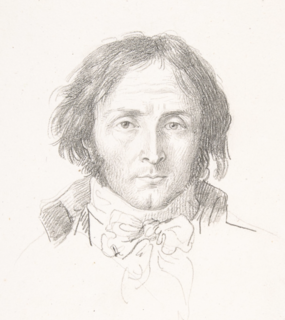 W
WGaetano Rossi was an Italian opera librettist for several of the well-known bel canto-era composers including Gioachino Rossini, Gaetano Donizetti, and Saverio Mercadante in Italy and Giacomo Meyerbeer in one of his early Italian successes. Other composers with whom he worked included Simon Mayr, a composer and Donizetti's teacher, as well as the prolific Giovanni Pacini.
 W
WGiovanni Ruffini was an Italian writer and patriot of the early 19th century. He is chiefly known for having written the draft of the libretto of the opera Don Pasquale for its composer Gaetano Donizetti.
 W
WAntonio Salvi was an Italian physician, court poet and librettist. He was in the service of the ducal court in Florence and the favourite librettist of Prince Ferdinando de' Medici. Salvi was one of the developers of the opera seria.
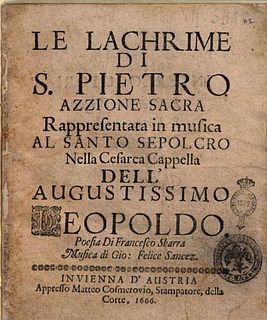 W
WFrancesco Sbarra was an Italian poet and librettist. Born in Lucca, he spent most of his career in Austria where he wrote the librettos for entertainments and operas at the courts of Archduke Ferdinand Charles in Innsbruck and Emperor Leopold I in Vienna.
 W
WRenato Simoni was an Italian journalist, playwright, writer and theatrical critic noted for his collaboration work with Giuseppe Adami for Giacomo Puccini's Turandot.
 W
WTemistocle Solera was an Italian opera composer and librettist.
 W
WAntonio Somma was an Italian playwright who is most well known for writing the libretto of an opera which ultimately became Giuseppe Verdi's Un ballo in maschera in 1859. While a student, his tragedy, Parisina, gave him quite a success.
 W
WGiulio Strozzi was a Venetian poet and libretto writer. His libretti were put to music by composers like Claudio Monteverdi, Francesco Cavalli, Francesco Manelli, and Francesco Sacrati. He sometimes used the pseudonym Luigi Zorzisto.
 W
WGiovanni Targioni-Tozzetti was an Italian librettist.
 W
WApostolo Zeno was a Venetian poet, librettist, journalist, and man of letters.